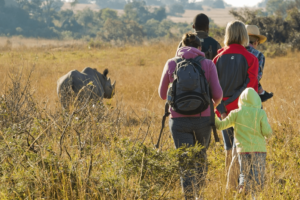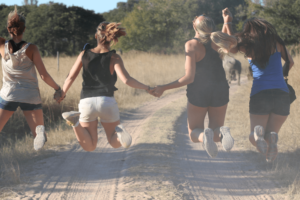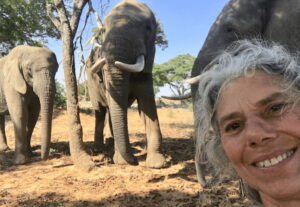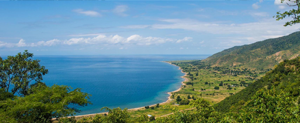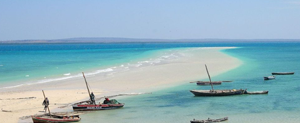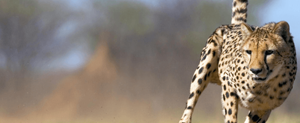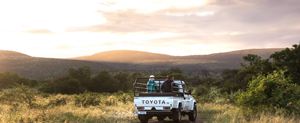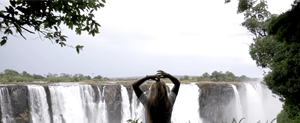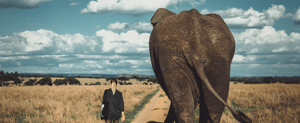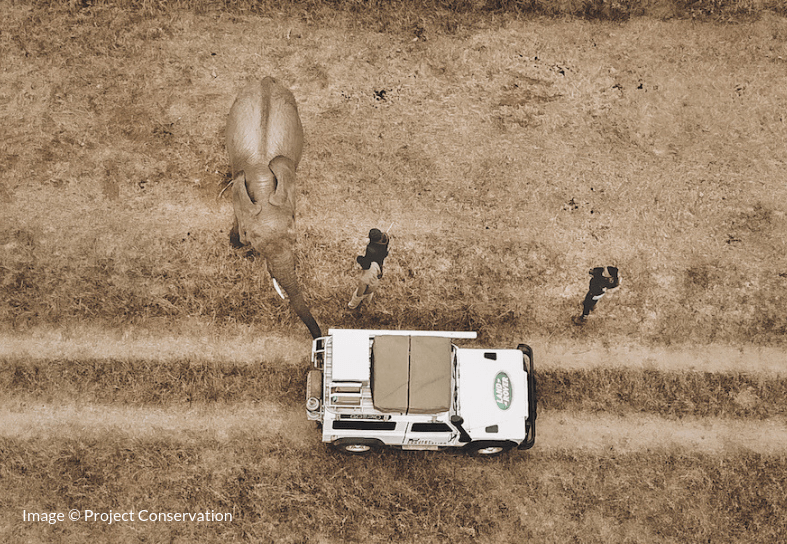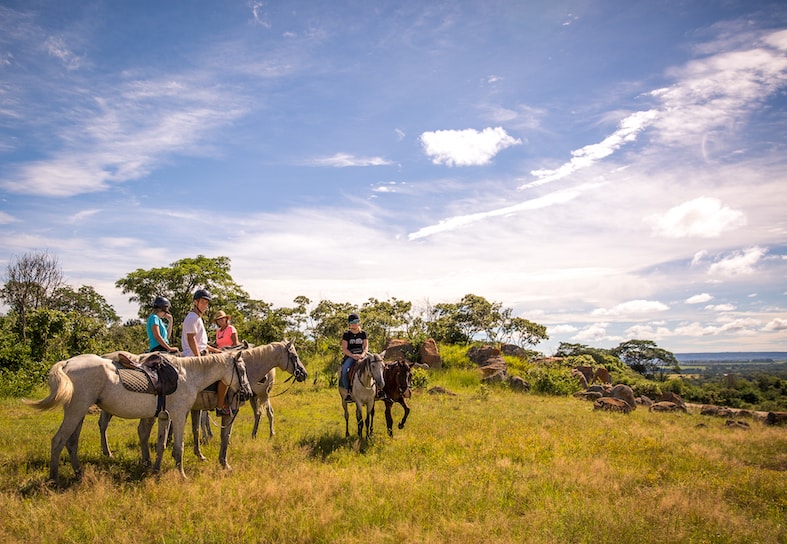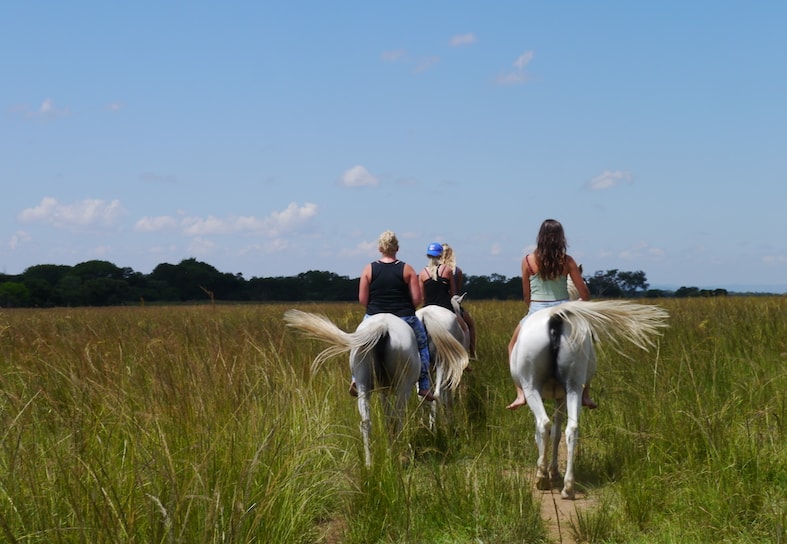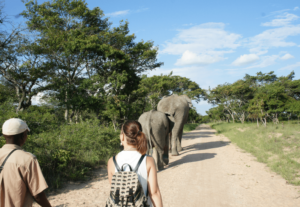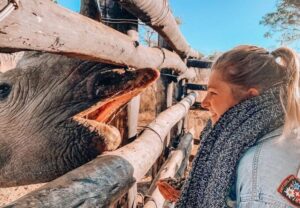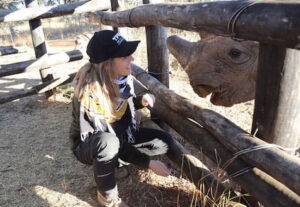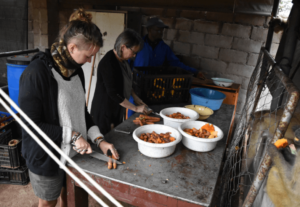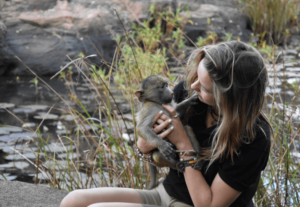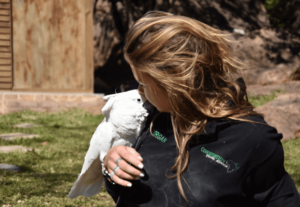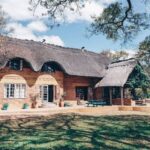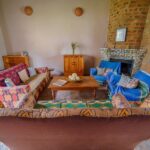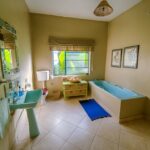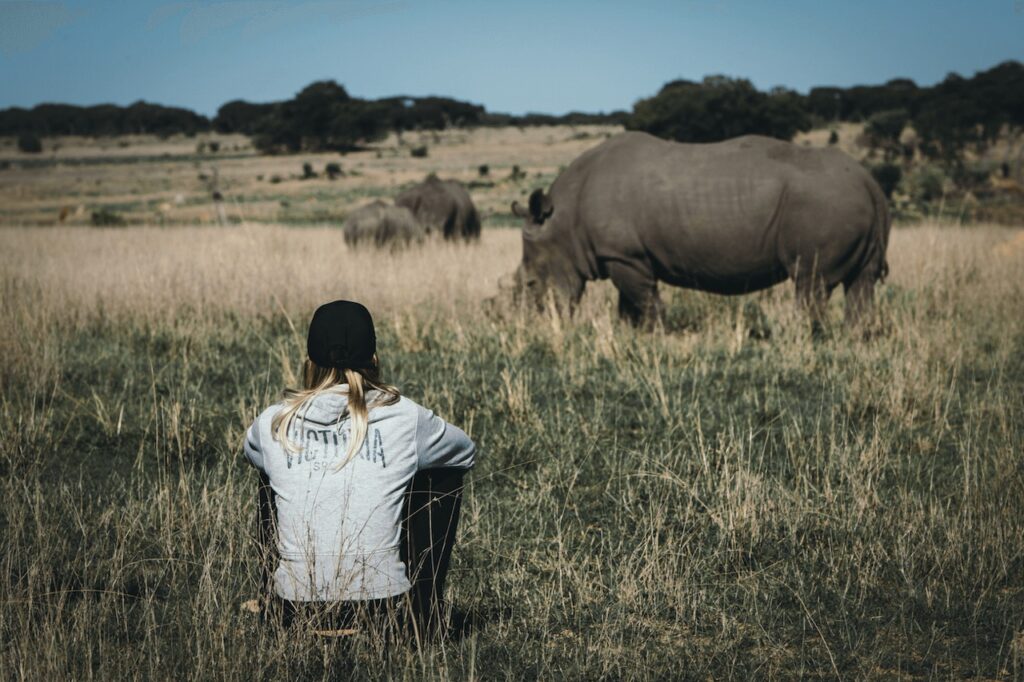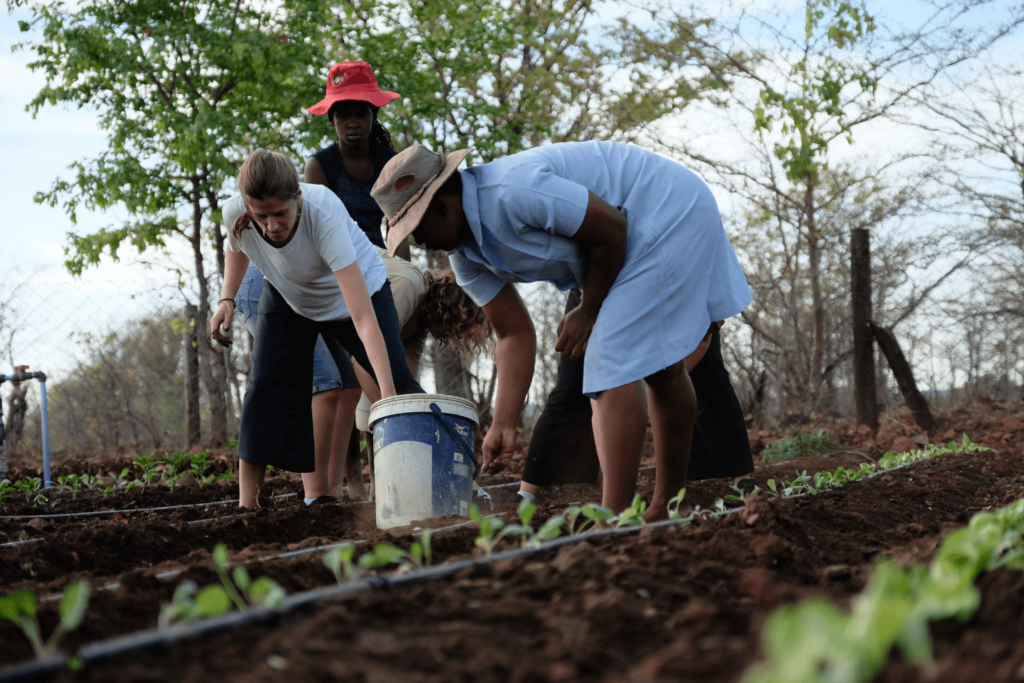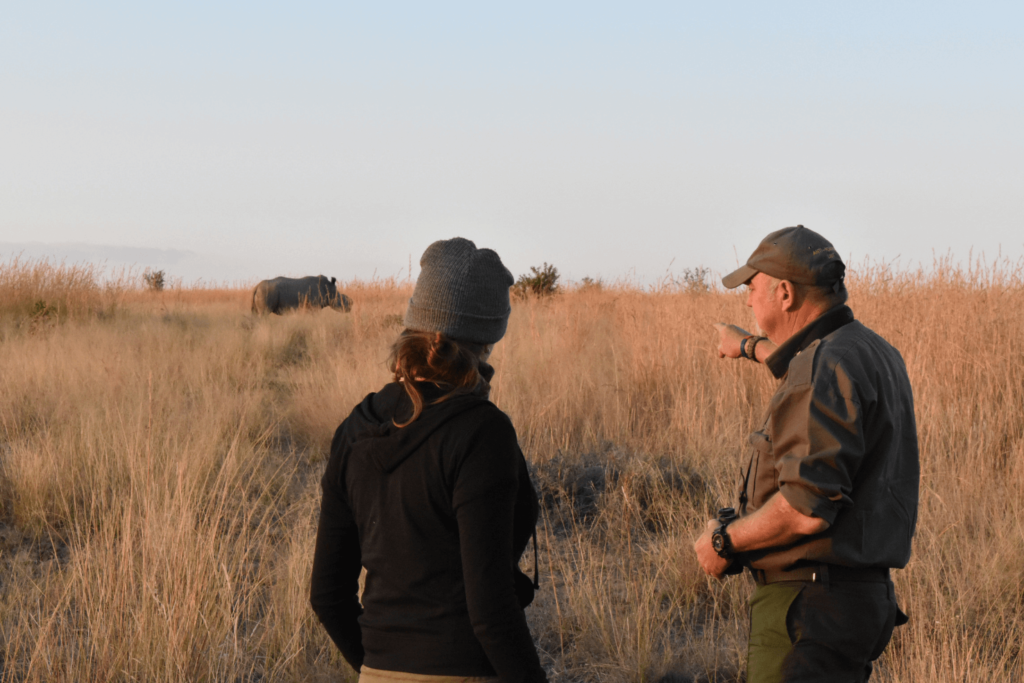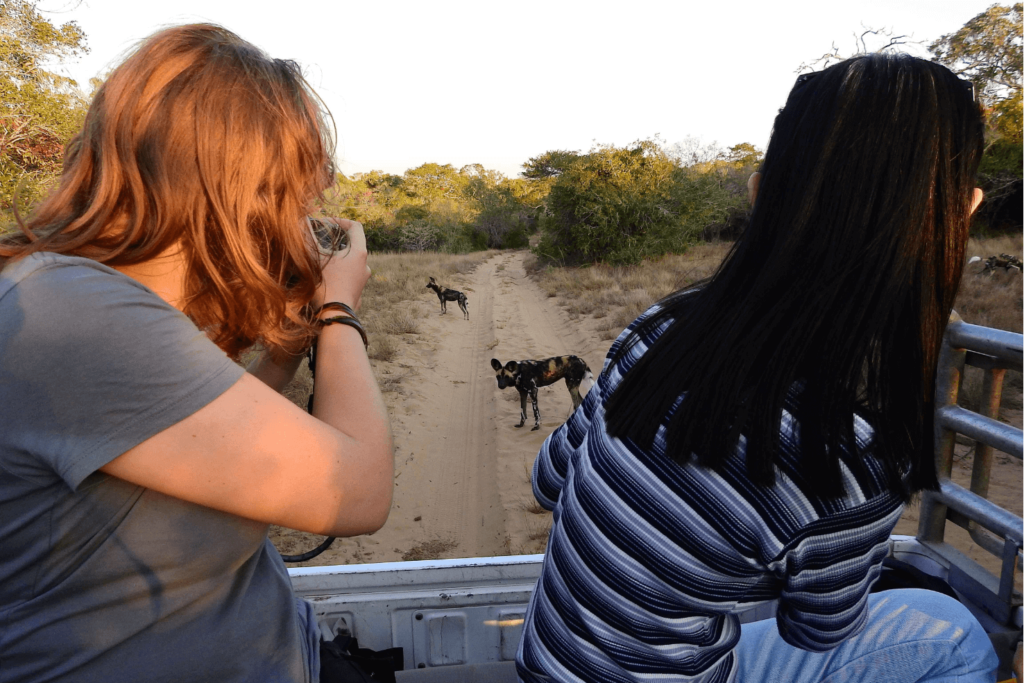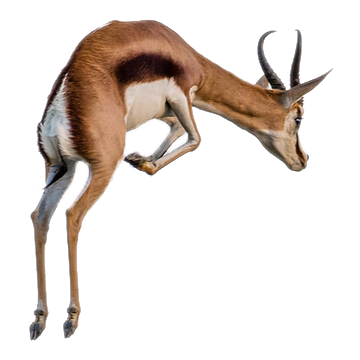Horse Riding & Rhino Conservation
ZIMBABWE
Zimbabwe
1 - 2 weeks
Every Monday
Up to 4 people
Age 17+
From $1,435
Zimbabwe
1 - 2 weeks
Every Monday
Mondays
Up to 4 people
Max 4
Age 17+
From $1,305
What's the project about?
Imire: Rhino & Wildlife Conservation is dedicated to the protection and security of African wildlife, with particular focus on the endangered black rhino. Their vision is to secure the future of Africa’s natural heritage, taking an integrated approach to conservation. This is achieved through the creation of positive relationships between communities and the wildlife they live beside. Your role as a horse riding volunteer is vital to the security of the reserve and its wildlife.
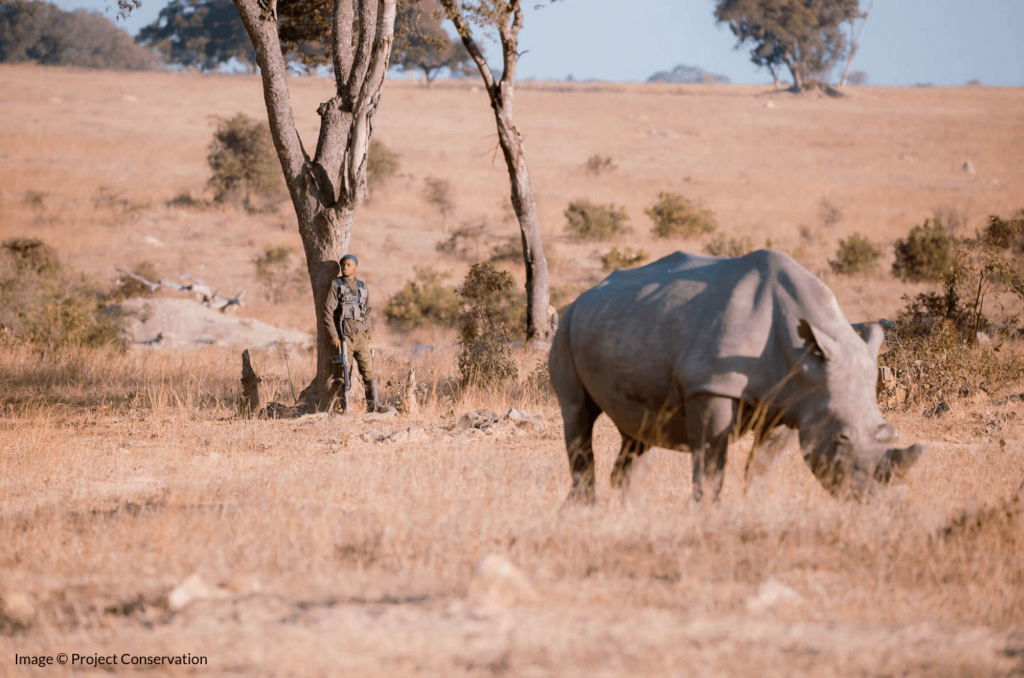
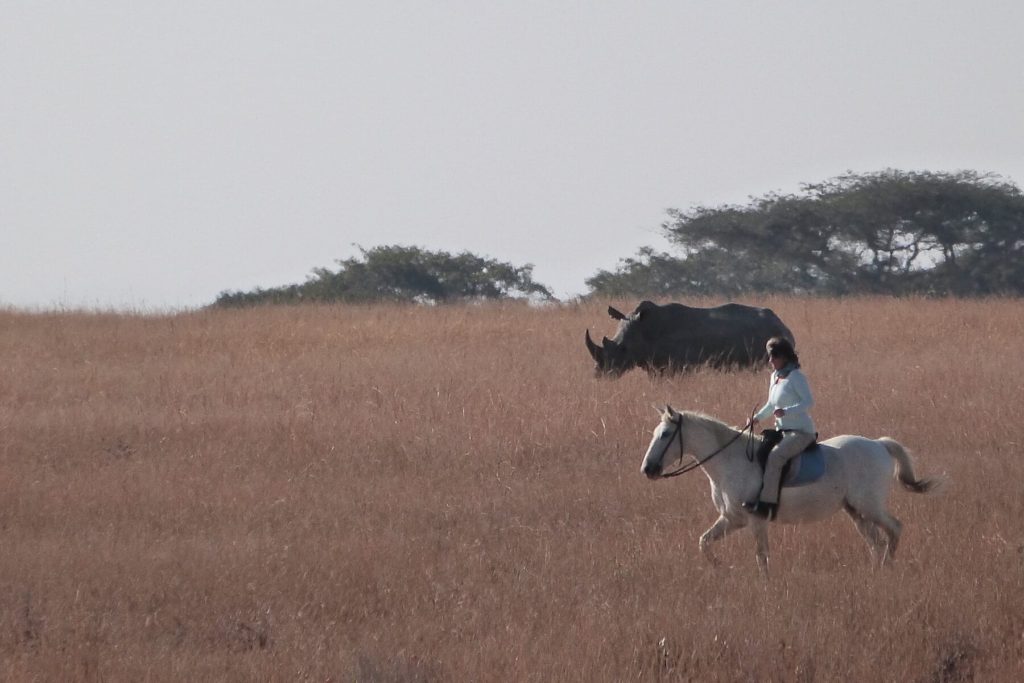
How will I be contributing?
On our horse riding volunteer programme, equine volunteers will experience the best of our Rhino & Elephant Conservation Programme, plus contribute to conservancy management and anti-poaching on horseback. As a horse riding volunteer you will go on game counts, search for lost animals, patrol the boundary and interact closely with iconic wildlife. This is a once-in-a-lifetime opportunity to play a vital role in the operation of a rhino conservancy, and become part of a dedicated, passionate conservation family.
What makes this project ethical?
Private conservancies such as Imire, play a vital role in protecting and propagating endangered species. The human-wildlife conflict is possibly the greatest issue currently faced by conservationists. Through volunteering at Imire, you are directly participating in not only the protection of threatened wildlife, but also contributing to a conservation success story – where communities and conservancies peacefully and beneficially co-exist.
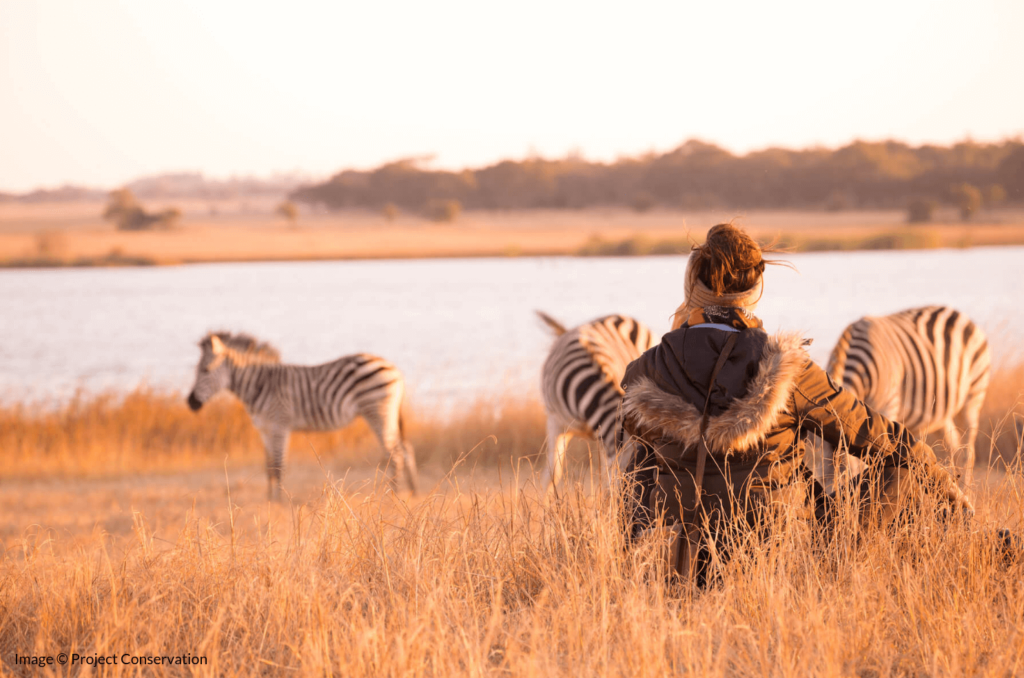
Project showreel
Project gallery
Project information
Experience a unique side to Africa as you volunteer on horseback. Combine daily horse rides with an integrated approach to endangered wildlife conservation. As a horse riding volunteer you work closely with local employees and community members, and play a key role in protecting the resident elephant and rhino.
Horse riding volunteering at Imire is a unique opportunity to immerse yourself in a new country and culture, and experience day-to-day life in Africa. In return you will contribute to an important conservation cause. The experience will be life-changing.
Horse riding volunteers are involved with a variety of tasks, which include opportunities to:
- Get involved with conservancy monitoring and maintenance – horses being an ideal partner in environmental management
- Work closely alongside rhinos, elephants and an abundance of other wildlife
- Participate in horseback snare patrols and anti-poaching activities
- Participate in a wide range of conservation activities including game counts, wildlife research and animal tracking
- Educate local school children about conservation, wildlife and the environment
- Educate yourself about wildlife conservation and the threats to African wildlife, and experience first-hand the immense undertaking of managing a wildlife conservancy
Equine volunteers will ride for approximately 3 hours a day, 5 days a week, and enjoy daily interactions with the conservancy’s flagship species.
A horse riding volunteer will usually get involved in some or all of the following activities:
Rhino and Elephant conservation:
- Collect observational data on rhino and elephant behaviour, health, movements, interactions and browsing activities
- Ride alongside the rhinos and elephants while you carry out your data gathering
- Learn from experienced handlers about the challenges these animals face to survive
- Repair elephant damage
- Cut browse for night time feeds
- Learn to use telemetry and identify rhino tracks and signs in the bush
- Maintenance of rhino and elephant beds
Anti-poaching and security
- Monitor inaccessible areas of the conservancy to check for evidence of poaching or security breaches
- Check, secure and repair boundary fences
- Conduct weapons training and anti-poaching simulations
- Participate in camp-outs and night patrols
Conservancy management on horseback
- Deliver feed and nutritional supplements around the conservancy, focusing on sable, giraffe, lion, elephants and buffalo
- Undertake game counts and herd studies on horseback
- Locate new mothers and check on babies
- Carry out indigenous tree planting, and invasive and alien species removal
- Maintain fences, roads, fireguards and equipment
Cattle mustering on horseback
The reserve has a dedicated cattle team who look after the 800 resident cows and bulls. Horse riding volunteers will join the team to help ensure the cattle are in good health.
- Move cattle to different sections of the farm
- Undertake inspections to check for injuries, pests and pregnancy
- Assist with rounding up cattle for weekly dipping
Community projects
Imire has been closely involved with the Wedza community since its foundation. Community engagement is the essence of sustainable conservation, and Imire has been a long-time champion of local employment, education, healthcare and poverty alleviation projects. Volunteers will get involved with:
- Education projects focusing on English literacy and conservation education
- Organic gardening and tree planting
- Beekeeping
- Homework and computer training for older children and adults
- Cultural exchange experiences through home visits, and Shona culture evenings
When can I volunteer?
Volunteers can join this project on set dates each month.
Availability in 2024 is as follows (please check for current availability as it can change regularly):
September 2nd – 9th: 1 space available (1 week programme only).
November 4th – 18th: 4th – 11th : 3 spaces available / 11th – 18th : FULL
December 2nd – 16th: 2 spaces available
You can combine this Horse Riding volunteer program easily with a week or more on the Rhino & Elephant Program if you’d like to spend two weeks or more volunteering in Zimbabwe.
2025 dates and availability (spaces available in brackets):
January 20th – February 3rd: (3)
February 10th – 24th: (4)
March 17th – April 3rd: (4)
April 14th – 28th: (4)
May 12th – 26th : (4)
June 9th – 23rd: (4)
July 7th – 21st: (4)
August 4th – 18th: (4)
September 1st– 15th: (4)
October 6th – 20th: (4)
November 3rd– 17th: (4)
December 1st – 16th: (4)
Please check with us to see if there have been any recent changes to availability.
Project pricing
1 week: $1,435
2 weeks: $2,870
All prices are in USD.
What’s included in the cost?
- Project contribution: this goes directly to our project partner, and provides funding to ensure the programme can continue to meet its goals. For this project it will cover things like staff costs, equipment purchases, maintenance of buildings, equipment and vehicles, veterinary fees, horse feed, fencing, and funding for community projects
- Accommodation and three meals per day
- Return airport transfers (Mondays)
- Laundry and housekeeping
- Comprehensive orientation and supervision
- Practical instruction by experienced guides
- Equipment and materials required to do your work
What’s not included?
- Flights or travel to Harare, Zimbabwe
- Visa fees (variable depending on nationality)
- Travel insurance (compulsory)
- Personal expenses such as souvenirs, drinks from the bar, snacks
- Pre and / or post programme accommodation (if required)
- Additional excursions
- Local SIM card and data / airtime bundles (optional)
- Administration fee ($40)
View our booking terms and conditions.
Zimbabwe volunteer packages
RHINO CONSERVATION COMBO
We highly recommend combining the Horse Riding & Rhino Conservation Programme with the sister project at Imire, the Rhino & Elephant Conservation Programme, to experience the whole range of what Imire has to offer.
Combination project pricing:
1 week Rhino Conservation / 1 week Horse Riding: $2,485
2 weeks Rhino Conservation / 1 week Horse Riding: $3,535
1 week Rhino Conservation / 2 weeks Horse Riding: $3,920
Click for more details of the Rhino & Elephant Conservation Programme.
WATCH: Rhino & Elephant Conservation Project video.
CONSERVANCY & SANCTUARY COMBO
We’ve also combined our Horse Riding & Rhino Conservation Programme with our popular Primate Conservation Programme. Experience large and small animal conservation, working with two organisations dedicated to Zimbabwe’s animal welfare. As well as interacting with and learning about Africa’s iconic large mammals, you can also get to grips with caring for a range of smaller mammals and birds, based at Zimbabwe’s only dedicated primate rehabilitation centre. Click for more details of our Conservancy & Rehabilitation combination project.
The horse riding volunteer programme is small and welcoming, taking a maximum of 4 volunteers. Volunteers on this project will be based at Numwa House, in an idyllic setting on the banks of a large dam.
Numwa House is a thatched farmhouse in the heart of the conservancy. The view from the house, and the African sights and sounds, make this a unique living situation. Horse riding volunteers share the house with volunteers on the project’s Rhino & Elephant Conservation Programme, with a maximum of 12 volunteers living in the house at any one time.
The house has five bedrooms, with four twin / double rooms and a same-sex dormitory. There are two inside bathrooms with bath or shower, an inside toilet with basin, and three outside solar showers, with the best view in the house! Have a hot shower and admire a magnificent sunset over the dam. The house also has a pool and outside verandah.
Three home cooked meals are provided each day on a self-serve basis. Vegetarian and vegan options are available, but should you have any complicated dietary requirements or food allergies, it is important you let us know before you arrive. The project are unable to cater for very specific dietary needs (for example gluten, dairy or wheat intolerance), so you may be asked to bring any specialist foods with you. The chefs will be able to prepare these for you alongside other volunteer’s standard meals. Clean, safe drinking water is pumped from a borehole.
Your rooms and communal areas will be cleaned every day, and the housekeeping staff will also do your laundry when required. An outhouse laundry is available for washing smalls or should you wish to do an extra load of your own.
Bear in mind that electricity can be intermittent in Africa, especially during our rainy season. For backup, the project are prepared with basic solar powered lighting and a generator which will run for a short time in the morning and evening.
It’s time to get away from it all! There is no Wi-Fi at the project, and cellphone signal and 3G connection is only intermittently available. When there are electricity problems, the cellphone signal can be problematic, but is available to touch base with home in certain areas of the conservancy.
The volunteer coordinators have access to a safe for securely locking away any cash or valuables you may have brought with you.
“The house is spacious, super clean, attractive and comfortable inside and amazingly beautiful outside, with huge yard, swimming pool, a wonderful expansive lake with boats, earth mounds from which to watch the sunset, comfy outdoor seating for gathering and tea/coffee, a hammock to relax in, splendid outdoor showers and toilets – so plenty for the whole house. The staff keeps the house immaculately clean and tidy. The food is good and offers plenty of variety.”
What riding skills do I need?
This is not a riding school programme, and all equine volunteers need to be confident riders. You must be able to carry out a rising trot and canter, and have a number of years experience, preferably of riding different horses. The project uses English saddles. There is a weight limit of 80kg for riders, as the horses are not used to carrying more weight over long periods.
What special equipment do I need to bring?
Please bring a riding helmet, 1-2 litre reusable water bottle and a small daypack (rucksack). Saddles and tack are provided. You do not need to bring riding boots, just closed shoes.
Who should volunteer on this project?
The unifying motivation of nearly all Imire volunteers is an interest in a genuine conservation programme, and a desire to be part of a smaller group of volunteers. This horse riding and conservation project is a wonderful experience for volunteers of all ages, where you can experience Africa in a safe environment, and become part of a very special team. There is some walking and foot-based tracking on the project, plus climbing in and out of a high-sided vehicle, so volunteers should be of reasonable mobility.
How old do I need to be?
The minimum volunteering age for solo travellers is 17 years. There is no upper age limit, but for volunteers aged over 65, we do require your medical form to be signed by a doctor.
Can I volunteer with my family?
If you are a family, please visit our Rhino Conservation – Family Programme page for further details. The minimum age for accompanied horse riders is 14 years and the minimum age for unaccompanied riders is 17 years.
How many people will there be?
There is a maximum of 4 Horse Riding volunteers at one time. Horse riding volunteers share the house with volunteers on the project’s Rhino & Elephant Conservation Programme, with a maximum of 12 volunteers living in the house at any one time.
When can I join?
Volunteers should aim to arrive and depart on a Monday. The inclusive transfer service is as follows:
Arrivals – Mondays
There is one collection from Harare International Airport at 1300 every Monday afternoon. Should your preferred flight arrive later than this, you can either arrive into Harare on the Sunday and arrange overnight accommodation in town, or you can arrive on Monday and pay a transfer supplement of $100. Please note we cannot organise a same-day transfer for international flights arriving after 1600. If you choose to arrive on Sunday, you should make your way to the airport at an agreed time on Monday.
Departures – Mondays
There is one transfer from Imire which arrives at Harare International Airport at 1000 on Monday morning. Onward flights should depart later than midday to allow ample time to check in. Should you wish to book a departure transfer outside of this time, there is a transfer supplement charge of $100. Please do not book an international flight departing before 0930 or a domestic flight departing before 0830.
When is the best time to come?
The game viewing and interaction at this project is year-round, so there is no real ‘best time’ to visit. December to March is ‘baby season’, where many of the plains game give birth, so there are always lots of new animals around.
From a weather perspective; April – October is the dry season, with the rains usually coming again in mid to late November. June – September is winter, characterised by warm, sunny days, clear blue skies and cool evenings and nights. October is the hottest month, with temperatures in the area reaching 30-32 degrees. November – March is summer, where rain showers are intermingled with hot, sunny days and temperatures of over 30 degrees.
Do I get some time off?
Volunteers work from Monday to Saturday lunchtime. Saturday afternoon and Sunday is leisure time, where you can go fishing, canoeing or hiking, or relax by the pool at the volunteer house. We highly recommend a weekend excursion to Victoria Falls (a one hour flight), which should be organised prior to your arrival.
How long can I volunteer for?
The horse riding volunteer programme runs for either one or two weeks at a time. If you wish to volunteer for longer, you can combine the project with the Rhino & Elephant Conservation Programme, for a maximum stay of up to 12 weeks.
How much spending money should I bring?
We recommend bringing around $150 per week in USD to cover personal expenses such as your tourist visa, drinks, souvenirs, t-shirt, snacks, tips and internet usage.
Do I need a visa?
Most nationalities, including British, American, Canadian, Australian and most EU citizens, can get a 30-day tourist visa upon arrival into Harare. Fees are dependent on nationality and range from $30 – $75 (paid in USD cash). Extensions are available from the Department of Immigration in Harare, up to a maximum stay of 6 months. It is your responsibility to check your visa eligibility prior to arrival.
What animals will I encounter?
Imire is world-world-famous for its nine black and eight white rhino. In addition, the conservancy is home to three elephants, a herd of Cape buffalo and an elderly male lion, living out his retirement in comfort! There is a variety of plains game including eland, kudu, nyala, waterbuck, blesbok, zebra, giraffe, wildebeest and crocodile, plus herds of the rare sable antelope – Zimbabwe’s National Animal. Imire is also home to a wide variety of birds, reptiles and snakes.
What vaccinations do I need?
Please consult your GP or travel clinic for detailed medical advice. All volunteers should make sure their tetanus is up to date. A rabies vaccination is not compulsory.
Malaria – the project is regarded as a low-risk malaria area, but please consult your GP for guidance.
Please visit this UK government website for more details.
The primary goal of Imire is to support Zimbabwe’s rhino heritage, through the successful breeding and re-introduction of the endangered black rhino. Alongside this goal is to ensure the long term protection of Zimbabwe’s wildlife through a unified and holistic approach to wildlife conservation. Their aim is to create a blueprint for small conservancies, enabling them to peacefully and successfully exist alongside local communities. This ensures that environmental stakeholders, including landowners, conservationists, communities and local farmers, all benefit from the presence of wildlife.
The horse riding volunteer programme forms a critical part of Imire’s mission to connect responsible travellers, wildlife programmes and community projects, to create a sustainable, long term, collaborative conservation strategy. Wildlife volunteers at Imire have a significant impact on Imire’s conservation efforts in Zimbabwe.
As a horse riding volunteer at Imire, you will gain an appreciation of the dedication and commitment it takes to protect wildlife in Africa. You will also obtain an understanding of holistic conservation strategies and ethical conservation practices.
Imire: Rhino & Wildlife Conservation is a 10,000 hectare privately owned rhino conservancy in the Mashonaland East district of Zimbabwe, approximately 130km east of Harare. The conservancy is dedicated to the welfare of all wildlife, with a particular focus on the protection and breeding of white rhino, and the critically endangered black rhino.
Imire was founded in 1948 by Norman and Gilly Travers. Originally farmers, the Travers’ had a passion for wildlife and conservation, leading to the establishment of Imire as a wildlife conservancy in 1972. During the 1970s, game was introduced back onto what was previously farmland. Then, like Noah’s Ark, the animals came in two by two and by 1980 the park was home to sizeable herds of plains game – waterbuck, impala, nyala, zebra and the rare sable antelope.
A history of rhino conservation
During the poaching crisis of the 1980s, most of Zimbabwe’s remaining black rhino population were relocated to the relative safety of Intensive Protection Zones within private conservancies. In 1987, Imire was granted custodianship of seven orphaned calves from the Zambezi Valley and became a dedicated black rhino breeding station. To date, 21 rhino have been born on the reserve, and Imire has released 13 black rhino back into National Parks in Zimbabwe.
With increasingly sophisticated wildlife poaching, rhino numbers have again dropped alarmingly. Until the current high levels of poaching abate in Zimbabwe’s National Parks, Imire has resolved to protect and secure its rhino onsite, rather than risking release into wilderness areas.
Imire’s current strategy is for their rhino, excepting a core breeding herd, to be released into a community-supported, second stage, free-roaming wilderness area within Imire’s boundaries. This allows the rhino to become less habituated, without daily interactions and supplement feeding. Armed guards remain with the rhino, but at a distance. In this way Imire can ensure their rhinos are safe from birth, until such a time when they are able to confidently release rhino back into their wild habitats, in Zimbabwe’s National Parks.
Other wildlife
Imire is world-world-famous for its ten black and eight white rhino. In addition, the conservancy is home to three elephants, a herd of Cape buffalo and an elderly male lion, living out his retirement in comfort! There is a variety of plains game including eland, kudu, nyala, waterbuck, blesbok, zebra, giraffe, wildebeest and crocodile, plus herds of the rare sable antelope – Zimbabwe’s National Animal. Imire is also home to a wide variety of birds, reptiles and snakes.
Volunteer reviews

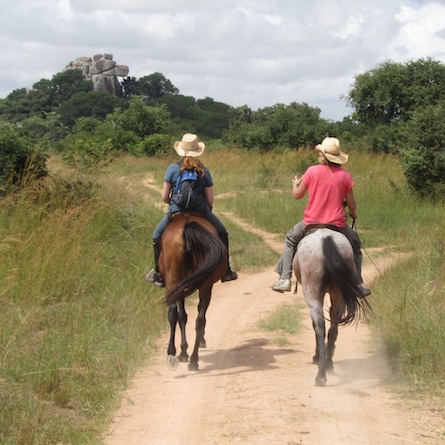
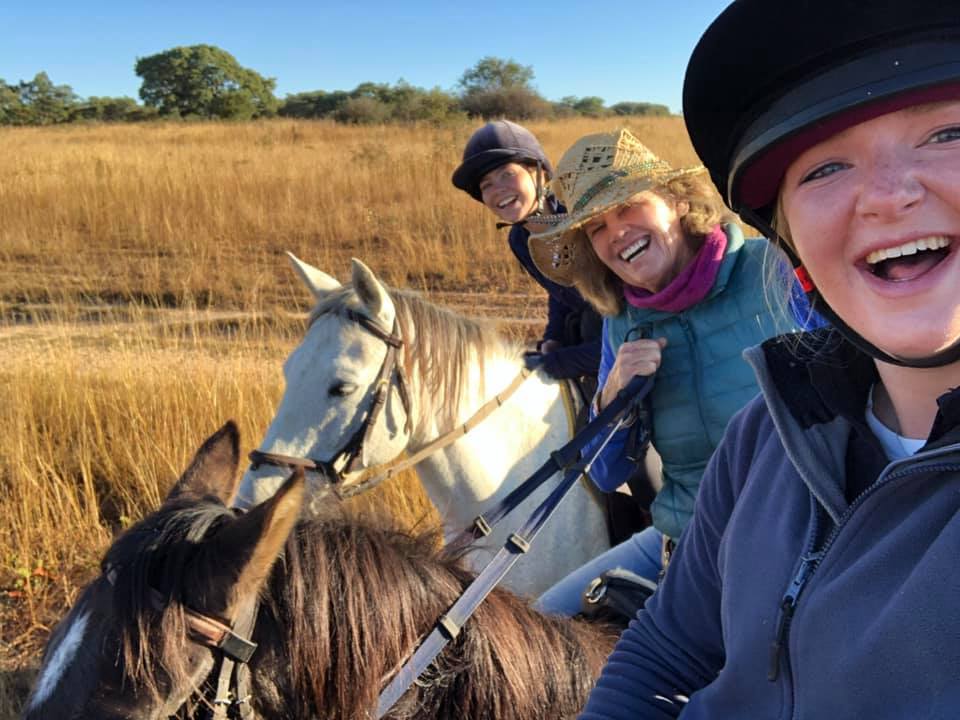

Other projects you might be interested in
Join a unique conservation programme, dedicated to the protection of the black rhino. Play a vital role in securing the future of these iconic animals.
From $1,050
1 - 12 weeks
Volunteer in Victoria Falls and support grass-roots community action. Build strong communities through livelihood development and education projects.
From $850
1 - 12 weeks
Gain practical experience in advanced anti-poaching techniques, learning from South Africa’s most experienced conservation professionals.
From $1,395
7, 10, 14 days
Support conservation work to protect endangered species in South Africa. Monitor priority species including lion, leopard, cheetah, rhino and wild dog.

